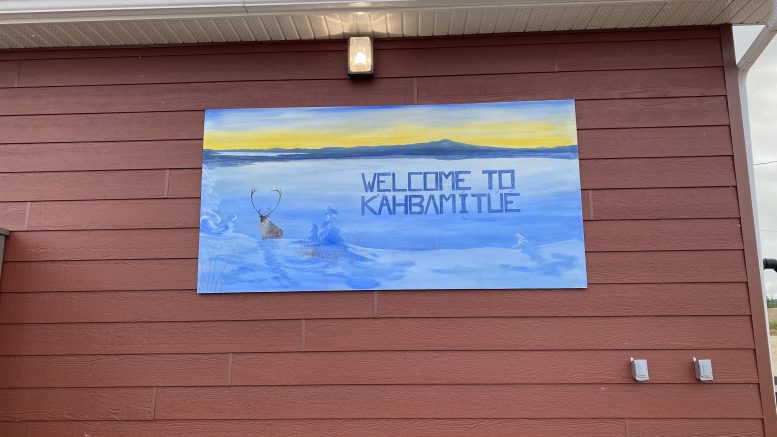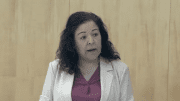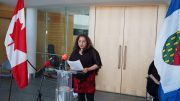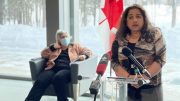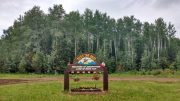Residents from fly-in communities have heard few details on vaccine exemptions for airlines as the requirement goes into effect next week.
A federal policy starting Oct. 30, will require passengers to provide proof of vaccination in order to board a plane.
The federal government has said it will be allowing exemptions for communities that can only be accessed by air. But little information is available on what these exemptions will be or how they will work.
Transport Canada said in an email last week that “there will be very limited, and strictly enforced, exceptions to these vaccination requirements.”
“Engagement with Indigenous People and provinces and territories is essential to ensure that passengers from small and/or remote communities will still be able to obtain essential services in support of their medical, health, or social well-being, and return safely to their homes,” writes Frédérica Dupuis, a spokesperson for Transport Canada. “Modified requirements, including a testing alternative, will be explored for flights from these locations.”
Travel in the North
The NWT has 12 communities that are only accessible by air for most of the year.
Paulatuk is one of the communities, but Mayor Ray Ruben Sr. says many in the community are unconcerned with the upcoming vaccine travel credentials. In fact, he says people are hoping for more restrictions on air travel into the community.
“The calls I’ve been getting are, are we able to go back to restricting fly-in, fly-out, to non-essential?” he says, “especially because our neighbour Inuvik, the COVID’s been pretty active at least for the last while.”
Ruben Sr. says with the new online vaccine credentials, travel will become easier for community members once they are comfortable leaving.
Paulatuk has a high vaccination rate, with 80 per cent of the eligible population fully vaccinated.
Colville Lake, another fly-in community, has among the lowest vaccination rates in the territory with only 38 per cent of the eligible population fully vaccinated.
North-Wright Airways, the Sahtú owned airline, is the only commercial airline that travels to Colville Lake. North-Wright Airways, like all airlines operating in Canada, will begin enforcing vaccination credentials on Oct. 30.
David Codzi is the president of the Ayoni Keh Land Corporation.
Codzi himself is vaccinated, something he expects kept him safe during the COVID outbreak in the community. But he says the unvaccinated residents of the community should still be able to travel for necessary reasons since the community is so remote.
“Most people don’t make that much money, if they’re going somewhere, they have to go there, it’s not because they want to have a little trip,” he says. “Especially with the cost of travel in the North.”
Despite the federal government saying they have been discussing with Indigenous leadership, no one in Paulatuk or Colville Lake say they have been consulted on the upcoming requirements.
An upcoming nightmare
James Heidema is the chief operating officer for Northwestern Air Lease Ltd.
He told CKLB in an interview that the company does support the vaccine mandate.
“Philosophically, we’re on board with the vaccine, it’s one of the few controls that we can offer to get in front of COVID-19. So corporately we support it,” he said.
However, he added that enforcing it will likely be a “nightmare.”
“There’s a lot of conditions,” Heidema says. “The problem is there’s exceptions, which we understand generally.”
Medical travel for someone who is unvaccinated is straightforward, Heidema says.
“The problem is how do you get back? How do you get back if you’re in Edmonton, or you’re in Yellowknife, and you want to get back to your home community?” he says.
The restrictions will go into effect on Oct. 30, but passengers in the process of being vaccinated can provide proof they have received a single shot and will need to show a negative COVID test within 72 hours of their scheduled flight.
This will only be in place until Nov. 30, after that only proof of vaccination status will be accepted.

